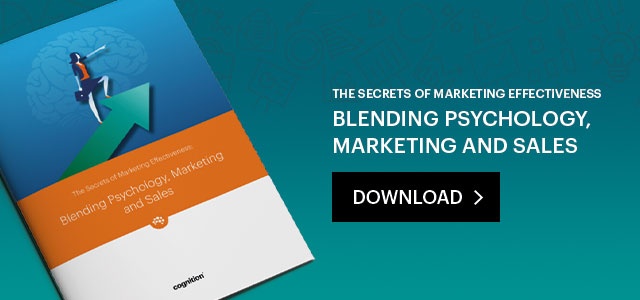You know your business, right?
You’ve worked in the industry for 20 years. You know what your customer wants and how to give it to them.
Even so, sales have been falling every year. People aren’t engaging like they used to. You’re not sure what the problem is – but it can’t be you. Can it?
The hard truth is – it might be.
At some point, we all fall prey to the way we see the world. The way we think it works. Our brains are fantastic information processing machines but they like to shortcut the hard work of dealing with the present moment by relying on accumulated experience and knowledge. This inevitably leads to errors in our thinking and decision-making. We call these errors cognitive biases.
As business leaders, when making decisions we like to think we are level-headed and logical, thinking clearly and using all of the available information, but the truth is our in-built biases often fool us, sending us stumbling after the wrong answers.
The deceptively comforting yet bias-laden phrase “this is how it’s always been done” is often a death sentence for new ideas and, quite soon afterwards, once profitable businesses. And what’s more, we can’t stop these biases from forming. They are an automatic process of a survival machine that seeks above all else speed and efficiency when processing new data.
This is bad news. How can we vanquish an enemy that is part of our wiring? The good news is we can uncover these biases, and by doing so minimise their influence over our thinking. And we do that first by becoming aware of them.
These cognitive biases might be killing your business
There are over 300 recorded cognitive biases but our research suggests that these three are the main culprits in business-related decision making errors.
Confirmation bias
Confirmation bias is when a person looks for and interprets information (be it news stories, statistical data or the opinions of others) that backs up an assumption or theory they already have. It’s the old “that’s how it’s always been done” in action, and is the number one reason that businesses that were once hot stuff can suddenly fall behind.
Continuation bias
How often have you created a new marketing or sales strategy only for it to miss the mark? How often have you continued using that strategy, in the vain hope that it might turn around? More often that you would care to admit, probably. Continuation bias is our tendency to persist with a plan that is failing. To stay on course even as the iceberg gets nearer. It’s easier to do that than have to rethink the whole thing and admit our failures.
Framing effect
The framing effect is a cognitive bias where people decide things on whether the options are presented with positive or negative connotations; e.g. as a loss or as a gain. People tend to avoid risk when a positive frame is presented but seek risks when a negative frame is presented. This is dangerous to people making large decisions because they may only be looking at a problem through one or two frames, essentially missing the big picture and steering their business off course.
It’s not me, it’s you
It’s a well-worn platitude that every person is their own worst enemy but where decision-making errors are concerned, it’s true.
It can be quite shocking when we first discover our own biases and realise there’s a whole wide world (and marketplace) out there that we’ve been blissfully unaware of, but with the uncomfortable awareness of our own limitations we can once again unlock our creativity and direct our business in a more promising direction.
Want to learn more? Read our guide on marketing, sales and psychology to enable you to recognise and challenge the biases in your business.
If you need help building an effective digital marketing strategy, why not book a free online consultation with one of our digital marketing experts? All you need to do is bring the coffee! Book your appointment below.





